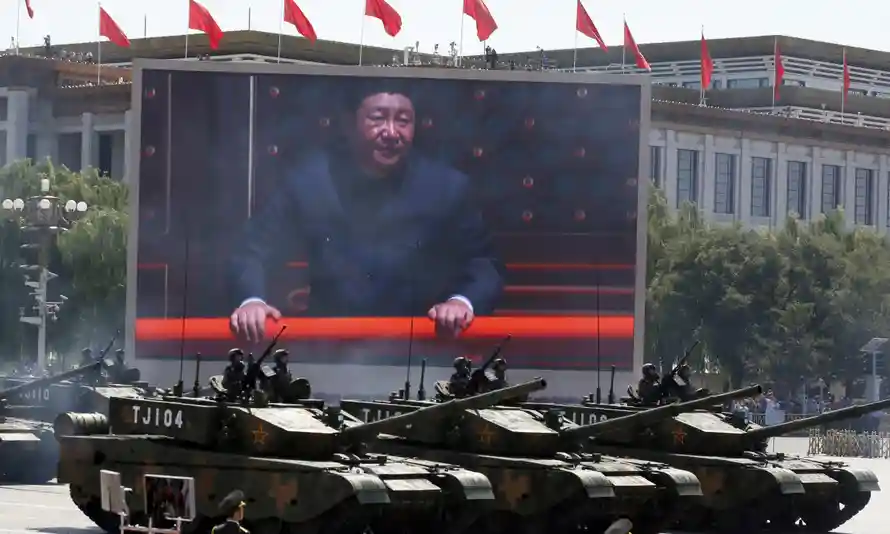a surprising turn of events, a recent US intelligence report has shed light on alarming weaknesses within China’s military apparatus, bringing into question the readiness and capabilities of one of the world’s most powerful nations. The revelations stem from a series of high-profile purges initiated by Chinese President Xi Jinping, targeting top military officials, including Lee Shang Fu, China’s defense minister.
The narrative unfolds with Xi Jinping’s directive to cleanse the People’s Liberation Army (PLA) from corruption, a campaign that has been ongoing for more than a decade. The anti-corruption drive, known as “tigers and flies,” aimed to crackdown on both high-ranking and lower-level officials involved in corrupt practices within the PLA. While the official reason behind the purges has been labeled as corruption, the recent US intelligence report delves deeper into the ramifications of this decade-long campaign.
The report suggests that rampant corruption within the PLA, particularly in the defense industrial base, has severely impacted China’s military preparedness and readiness for war. The findings highlight specific instances of corruption-induced vulnerabilities, pointing to an embarrassing reality for China.
One of the most astonishing revelations is that missiles supplied to the Chinese Army were filled with water instead of rocket fuel. This alarming oversight raises concerns about the integrity and quality control within China’s defense manufacturing. Additionally, in western China, a missile silo field was identified where the lids malfunctioned, rendering the missiles incapable of launching when needed. These technical deficiencies expose a critical weakness in China’s missile capabilities and underscore a potential risk to its national security.
The US intelligence report highlights the profound implications of these revelations, asserting that China’s military is not war-ready. The lack of preparedness, coupled with corruption-induced vulnerabilities, paints a stark picture of the PLA’s limitations. This assessment challenges the confidence that China exudes in its military might and raises doubts about its ability to effectively engage in warfare.
Xi Jinping’s relentless purge of military officials, including the removal of two top generals responsible for China’s nuclear rocket force, signals an ongoing effort to address systemic issues within the PLA. However, the report suggests that the purge may be indicative of deeper-rooted challenges that extend beyond corruption. It implies a fundamental weakness in China’s defense infrastructure, requiring comprehensive reforms to ensure the PLA’s efficacy on the global stage.
The Chinese military’s mouthpieces acknowledged the ongoing purge, attributing it to a broader anti-corruption campaign. While Xi Jinping’s commitment to eradicating corruption is evident, the US intelligence report raises questions about the efficacy of this campaign in addressing the core issues affecting China’s military capabilities.
As the purges continue, the international community observes with growing interest and concerns about the implications for regional and global security. China’s ambitions to project military strength on the world stage may face setbacks as internal weaknesses come to light. The juxtaposition of Xi Jinping’s aspirations for a formidable military force and the startling realities uncovered by the US intelligence report underscores the challenges China must confront in building a credible defense apparatus.
In conclusion, Xi Jinping’s military purge has not only exposed deep-rooted corruption within the PLA but has also revealed critical vulnerabilities that compromise China’s ability to project military power. The international community awaits further developments as China grapples with the aftermath of these revelations, raising questions about the trajectory of its military modernization efforts and the global implications of a weakened PLA.
